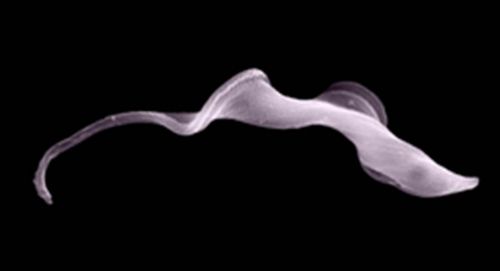
13/12/2017
ALBA Synchrotron Works for People’s Health
ALBA Synchrotron Works for People’s Health
Two recent works remind us that ALBA synchrotron is a very valuable tool to help develop new drugs.
On one hand, using the MIRAS beam line of the ALBA synchrotron (infrared radiations), researchers from the Universitat Autònoma de Barcelona (UAB) and the ALBA Synchrotron have demonstrated in a paper the capability of metalosomes - aggregates made of phospholipids and metal complexes - to interact with cells and release carbon monoxide in a controlled way (CO release can be beneficial because of its anti-inflammatory, vasodilator and cardio protective properties).
On the other hand, in another publication, a team led by researchers from the Universitat Politècnica de Catalunya (UPC) has unveiled the mechanism of action of two drugs, FR60 and JNI18, which cure 100% of mice with sleeping sickness. Using X-rays of the ALBA XALOC beam line, they have observed how these drugs perfectly stacked on the Trypanosoma brucei’s DNA, the parasite that causes the disease (image). Blocking and inflicting specific damage on its DNA, the parasite cannot reproduce and finally dies after 4-5 days.
On one hand, using the MIRAS beam line of the ALBA synchrotron (infrared radiations), researchers from the Universitat Autònoma de Barcelona (UAB) and the ALBA Synchrotron have demonstrated in a paper the capability of metalosomes - aggregates made of phospholipids and metal complexes - to interact with cells and release carbon monoxide in a controlled way (CO release can be beneficial because of its anti-inflammatory, vasodilator and cardio protective properties).
On the other hand, in another publication, a team led by researchers from the Universitat Politècnica de Catalunya (UPC) has unveiled the mechanism of action of two drugs, FR60 and JNI18, which cure 100% of mice with sleeping sickness. Using X-rays of the ALBA XALOC beam line, they have observed how these drugs perfectly stacked on the Trypanosoma brucei’s DNA, the parasite that causes the disease (image). Blocking and inflicting specific damage on its DNA, the parasite cannot reproduce and finally dies after 4-5 days.
More news
08/02/2019
Barcelona Synchrotron Park’s #10YearChallenge
01/02/2019
Eurecat, a provider of innovative technologies
25/01/2019
ALBA Synchrotron’s expertise involved in the design of two scientific facilities
18/01/2019
Stradivarius will launch perfumes
11/01/2019
Graphene-based implant developed by IMB and ICN2 on UAB campus records brain activity
03/01/2019
CREAF: 30 years in environmental sciences









